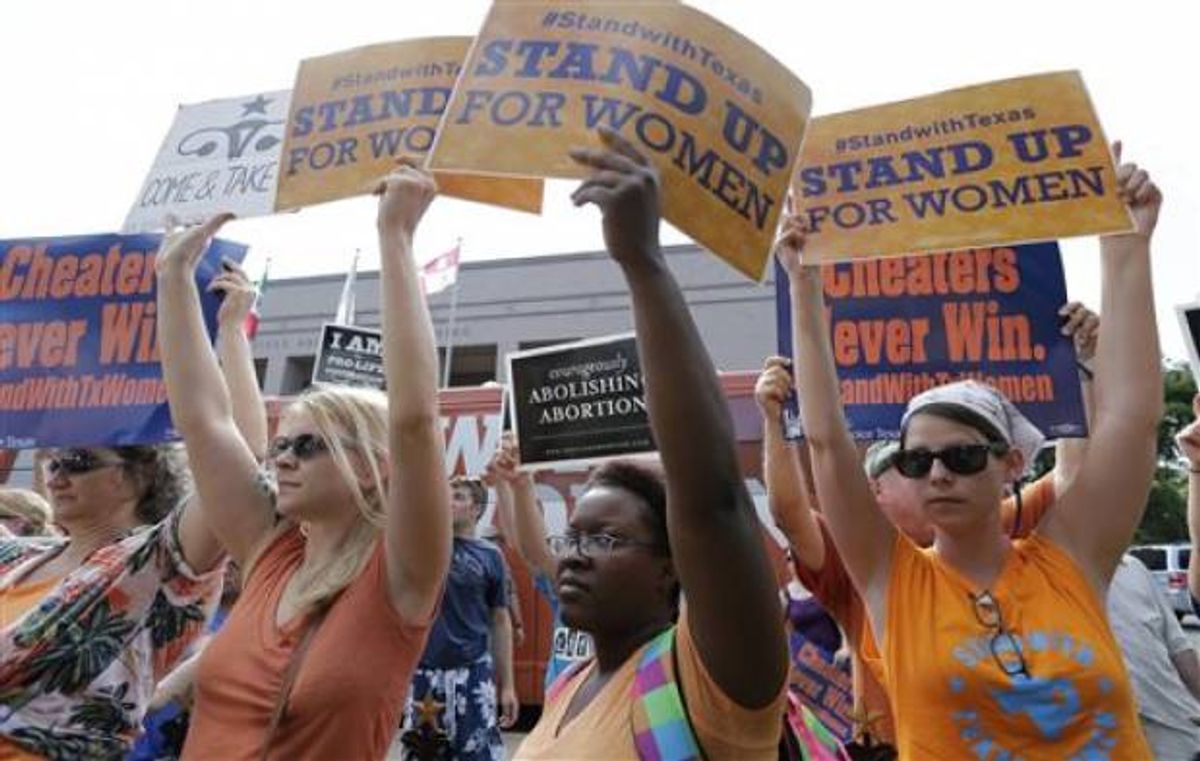The sole remaining reproductive health clinic in Texas' Rio Grande Valley, one of the poorest regions in the nation, closed its doors Thursday. Whole Woman's Health in McAllen fought to stay open in the wake of the state's sweeping new abortion restrictions, even continuing to provide counseling, referrals and other health services after its physicians were denied admitting privileges at local hospitals and legally barred from performing abortions, but is now laying off staff and looking to lease the building the clinic inhabited for a decade.
“The consequence of HB2 is an injustice, plain and simple. It is an injustice to the women we serve and to our communities,” Whole Woman's Health CEO Amy Hagstrom Miller said in a statement. “It is an injustice to those in Texas seeking their legal right to end an unwanted pregnancy safely. The legislators lied when they said HB2 would not close our clinics, that they weren’t trying to make safe abortion care inaccessible. Now, we see the truth.”
The nearest clinic in the region is now 150 miles away -- a five-hour round trip. Under current Texas law, people seeking abortion care are required to undergo a forced ultrasound, mandatory counseling and a 24-hour waiting period, all of which requires multiple visits to a clinic. In order to meet these requirements, people seeking care must make the 300-mile round trip at least twice, or secure a place to stay overnight. For many low-income people seeking care, these are insurmountable barriers that require taking time off work, securing transportation and finding childcare just to make the scheduled appointments.
In addition to the McAllen closures, the last remaining clinic in Beaumont has also closed as a result of the requirements imposed by HB2.
The sweeping restrictions have further compounded a reproductive health crisis brought on by years of Republican-led assaults on clinics and reproductive health programs. In the last year, 34 clinics have been forced to scale back services or cease providing abortions altogether. A dozen clinics have closed outright. It is estimated that when the final provisions of HB2 go into effect in September, only six clinics will remain open in the second most populous state in the nation.
The consequences have been devastating, particularly for low-income women of color living in rural parts of the state, according to Marva Sadler, director of clinical services at Whole Woman’s Health, and former clinic manager in Beaumont.
“The sad truth is that low-income women, women of color and rural women are the ones ultimately bearing the brunt of these harsh laws,” Sadler said . “Any woman in Beaumont deserves the respect and dignity of being able to safely and legally end a pregnancy if she needs to. The closure of this clinic now puts that out of reach for too many.”
Whole Woman's Health is currently challenging HB2 in court, a fight it intends to continue.
“Politicians may have closed our clinics, but we will always be here for the women and families of Texas,” said Hagstrom Miller. “We will fight back, for women and for Texas.”



Shares